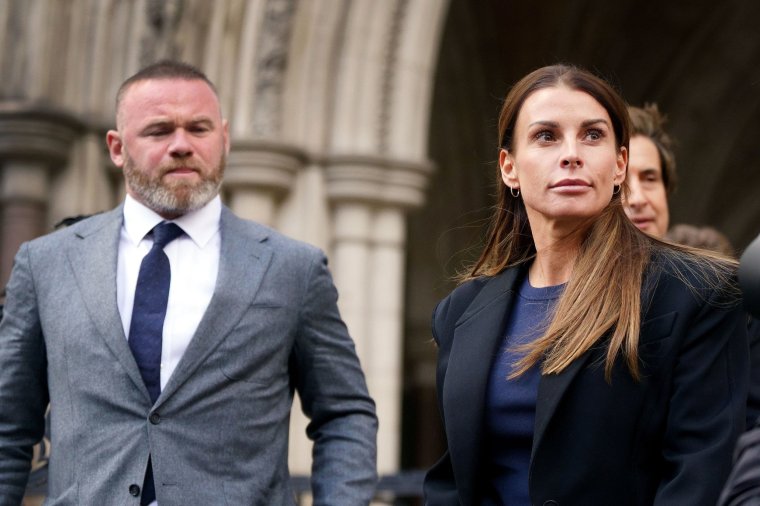Two weeks ago I found myself in the incredibly unlikely position of being schooled in the many virtues of Coleen Rooney and the minutiae of the Wagatha Christie trial by my father. He’s a 68-year-old retired economics teacher who has never read a tabloid, does not understand how Instagram works, and has hitherto displayed no interest – a complete aversion, in fact – to celebrity gossip in all its forms, for his entire life.
“It’s quite clever what she did actually, she’s not stupid,” he said, explaining how Rooney exposed Rebekah Vardy’s betrayal. “She’s down to earth by all accounts and seems a very good person”; “She’s put up with Wayne Rooney all these years and I’m surprised she never kicked him out – she’d be a very rich person if she took him to court”; “I’ve got a lot of respect for her”; “Good luck to her”.
It was a surreal conversation, but it was a reminder of how the “Wagatha Christie” trial transcended class, education, and generation and became – with the caveat that it was obviously very traumatic and expensive and time wasting for all parties involved – probably the best thing to happen to Britain in a decade.
The case had good triumphing over evil, it had sleuthing, it had a villain so deluded she actually took her victim to court, it had power suits and hair extensions and Davy Jones’s locker. And there being no physical danger, the public were free to lap it up with impunity. And it left us with the enduring impression of Coleen Rooney as a woman of grit, wit, and resilience, which she has only confirmed during her time in the I’m a Celebrity jungle.
Danny Jones might have won in last night’s final, but Rooney has triumphed as a woman with absolutely nothing to prove. Save one or two early conversations about the trial, in which she only really said the straight facts of what happened, she has barely discussed it, let alone engaged in any mud-slinging or gloating. She has not appeared defensive or damaged, does not seem desperate to show the world the “true” Coleen, and refuses to try and imply she ought to be regarded as “more than” a footballer’s wife.

Instead she has been, well, exactly what you see: a 38-year-old mother of four boys who still takes her family to Butlin’s despite having a combined net worth with her husband of £200m. She pulled her weight in camp, never moaned, never flinched at an insect, never screamed in a task, never fought her campmates for attention. She was unflappable, patient, cheeky, allowed everyone be themselves and generous in sharing her own life – how she coped with scrutiny over Wayne’s infidelity, how she felt when she lost her sister and saw her parents lose a child, why she is unapologetic about prioritising motherhood over a career.
She slips details about meeting royals and A-listers into conversation without ceremony but she still goes on holiday to a caravan park in Wales every year. She embraces her working-class roots, laughs at the absurdity of the world of privilege she has entered into, and has no pretence whatsoever. She smirks about having a “posh bar” and a “common bar” in the house but jokes about her husband washing his hands in the soup at a celebrity party “because he’d never had cold soup before”.
Vardy must be seething. Whatever Rooney’s motivations for I’m a Celeb – and I can’t work them out, because she doesn’t need the money and she’s not interested in the limelight – she has delivered a masterclass of integrity and composure and aggressive normalcy that forces us watching to relate to her. Meanwhile Vardy slags her off in a column in The Sun.
Rooney could have entered the jungle trading on her role as the hero of the Wagatha trial. The innocent, the righteous, the good. By instead coming across as the quiet, principled, steadfast matriarch unchanged by an extraordinary life and extraordinary wealth, she is much stronger than the victim in a celebrity feud – someone everyday women admire.


'President Musk' is flexing his muscles and revealing how weak Trump is